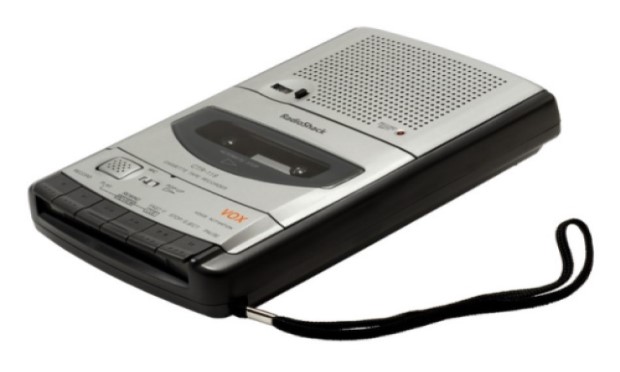Council sorry after Citizen journalist is ordered to stop recording a public meeting

On Tape: Council apologises as reporter told to stop recording. Photograph: Evan Amos.
Hackney Council has apologised after a freelance reporter for the Citizen was told to switch off their dictaphone and asked to delete the recording at a public meeting earlier this month.
Guidance from the Ministry of Housing, Communities and Local Government (MHCLG) specifically guarantees press and the public the right to take photographs, film and audio-record any proceedings held in public.
The transparency laws were enacted in 2014 by then secretary of state for local government Eric Pickles.
MHCLG guidance states the law’s purpose is to ensure “local government bodies are genuinely accountable to the local people whom they serve and to the local taxpayers who help fund them”.
The journalist, who prefers not to be named, was asked to put away their dictaphone by Cllr Sophie Conway (Lab, Hackney Central), who was chairing a 20 September meeting of the borough’s children and young people scrutiny commission.
The Citizen‘s reporter was told by Cllr Conway at the meeting that, in Hackney, permission must be sought before recordings are made.
MHCLG guidance states that no prior permission is required to record meetings held in public.
The journalist was subsequently asked by Cllr Conway to delete the material already recorded – this request was refused.
The guidance goes on to make clear that: “It is a legal duty for the local government body to follow [these] provisions.
“If a local government body’s existing standing orders are not fully in line with the legislation, in the short-term, we recommend they simply waive the relevant provisions of those old standing orders which could be taken to inhibit the new reporting rules, and then take steps to update formally its standing orders.”
Hackney’s own policy informs members of the public attending meetings that they are “asked to notify the council’s monitoring officer by noon on the day of the meeting, if possible, or any time prior to the start of the meeting or notify the Chair at the start of the meeting” if they intend to record it.
The topic under discussion at the meeting when the request was made was unregistered educational settings in the borough.
There could be between 1,000 and 1,500 children in Hackney missing out on formal education, according to council estimates.
Data in a recent council report presented to the meeting indicate that over a thousand children in the borough are not attending a registered school.
Some of these children are being educated at home, but the council is concerned that many may be receiving education in unregistered settings that do not necessarily meet regulatory standards.
Responding to the report, Deputy Mayor Anntoinette Bramble, cabinet member for education, young people and children’s social care, said: “We are hopeful that the current Elective Home Education (EHE) Bill may go some way to addressing the long standing concerns that are shared by all councils, which have yet to be satisfactorily addressed.
“The lack of a clear legal definition in regard to what constitutes efficient, suitable and full- time education is unacceptable. This, again, undermines the role of the Council when it comes to fulfilling our responsibilities.”
In the council’s view all educational settings in Hackney should be registered.
Responding to questions from the Citizen on the order made to its journalist to cease recording, a council spokesperson said: “Press and members of the public are permitted to record public meetings, and we’re sorry for the confusion.
“The nature of scrutiny commission meetings means that they are often attended by children and vulnerable adults.
“We ask that people make the chair aware that they are recording scrutiny meetings so that this can be taken into account.”
Subsequently, at the public 26 September Health in Hackney Scrutiny Commission, members of the press and public were asked by Cllr Ben Hayhurst (Lab, Hackney Central) to make themselves known if they were recording proceedings.
